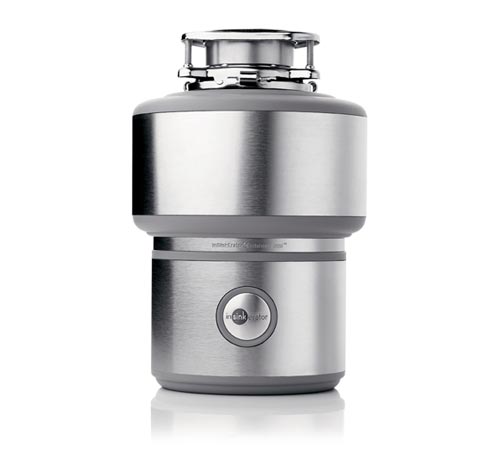The Benefits and Proper Uses of Commercial Food Waste Disposers

When consumers don’t clean their plates completely, there are only a couple of ways to dispose of food waste. One of those ways is with a commercial food waste disposer. Commercial food waste disposers are efficient, easy-to-use and environmentally sound.
The people at InSinkErator have put together some great information on how to properly use a disposer, the differences between commercial and residential food waste disposers and the benefits of using a commercial food waste disposer.
Proper Disposer Use
- Turn on disposer before feeding food waste gradually into disposer.
- After grinding is complete, turn off disposer and let water run about 30 seconds to flush drain.
- Food waste items that SHOULD be placed in disposers include: fruits, vegetables, meat, poultry, dairy, breads, grains, bones and seafood.
- Food waste items that should NOT be placed in disposers include stringy and fibrous materials like: artichokes, pineapple tops, corn husks and oyster shells.
- Other common kitchen items that should NOT go into the disposer include: silverware, soda cans, glass, lids, plastic wrap, latex gloves and corrosive chemicals.
Commercial vs. Residential Disposers
| Feature | Commercial | Residential |
| UL Approval | Commercial Applications | Residential Applications |
| Opening Size | 6 5/8” with option for 3 1/2” | 3 1/2” |
| Shredding Elements | HD Nickel Chromium or Cast iron | Stamped stainless steel |
| Motor Type | Induction wound, continuous duty | Induction wound, intermittent duty |
| Voltage | Tri-voltage, single or three phase | Single voltage and phase |
| Weight | 46 to 130 lbs. | 12 to 25 lb |
Environmental Benefits to Commercial Food Waste Disposers
- Helps reduce: Truck emissions, landfill methane emissions, landfill leachate and water table contamination.
- Food waste can be recycled into renewable energy and fertilizers.
- Makes recycling easier by helping separate food waste from bottles, cans, plastics and paper.
- Some InSinkErator models can reduce waste by up to 85%.
If you’d like to learn more about commercial food waste disposers click here.



